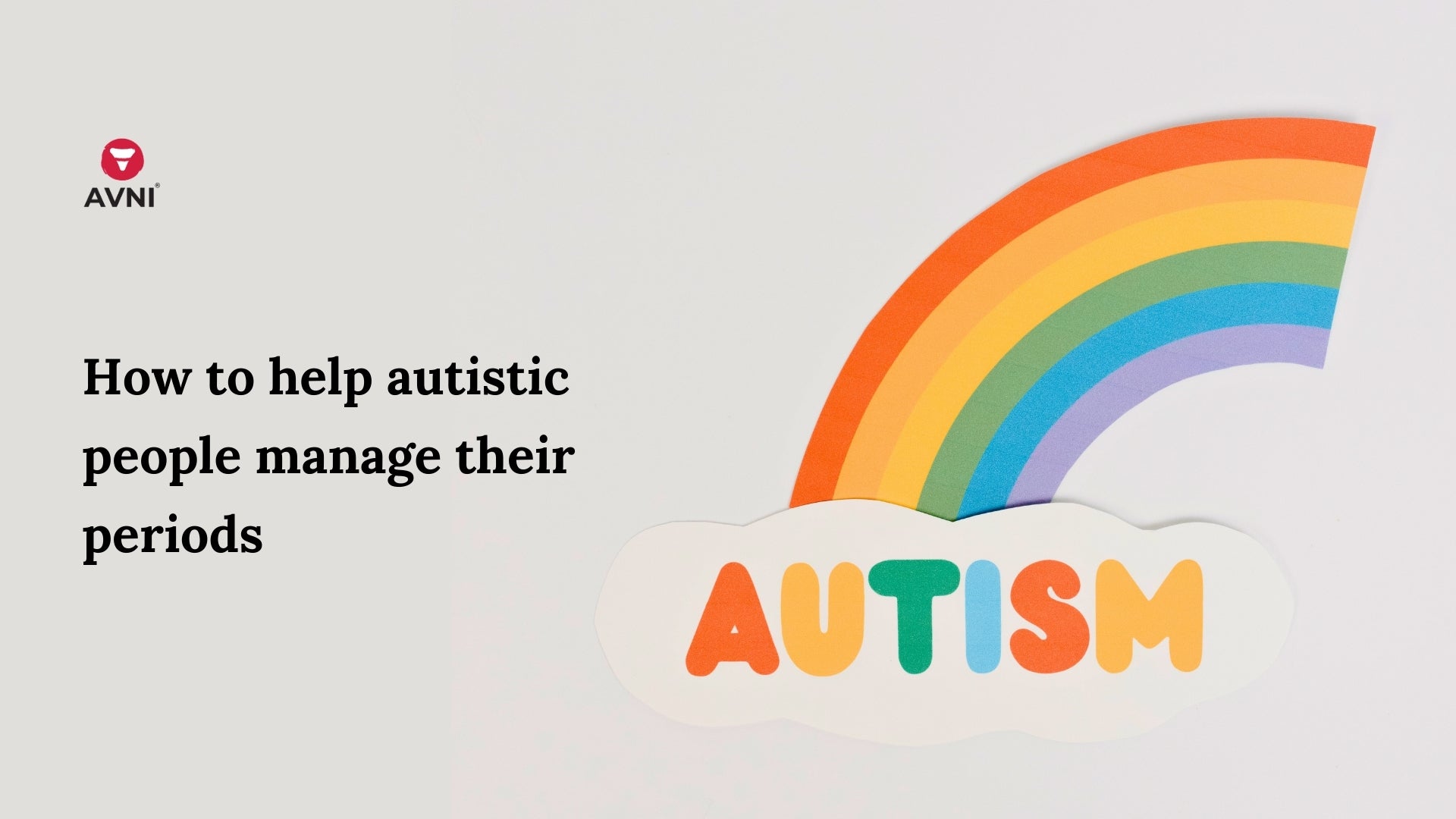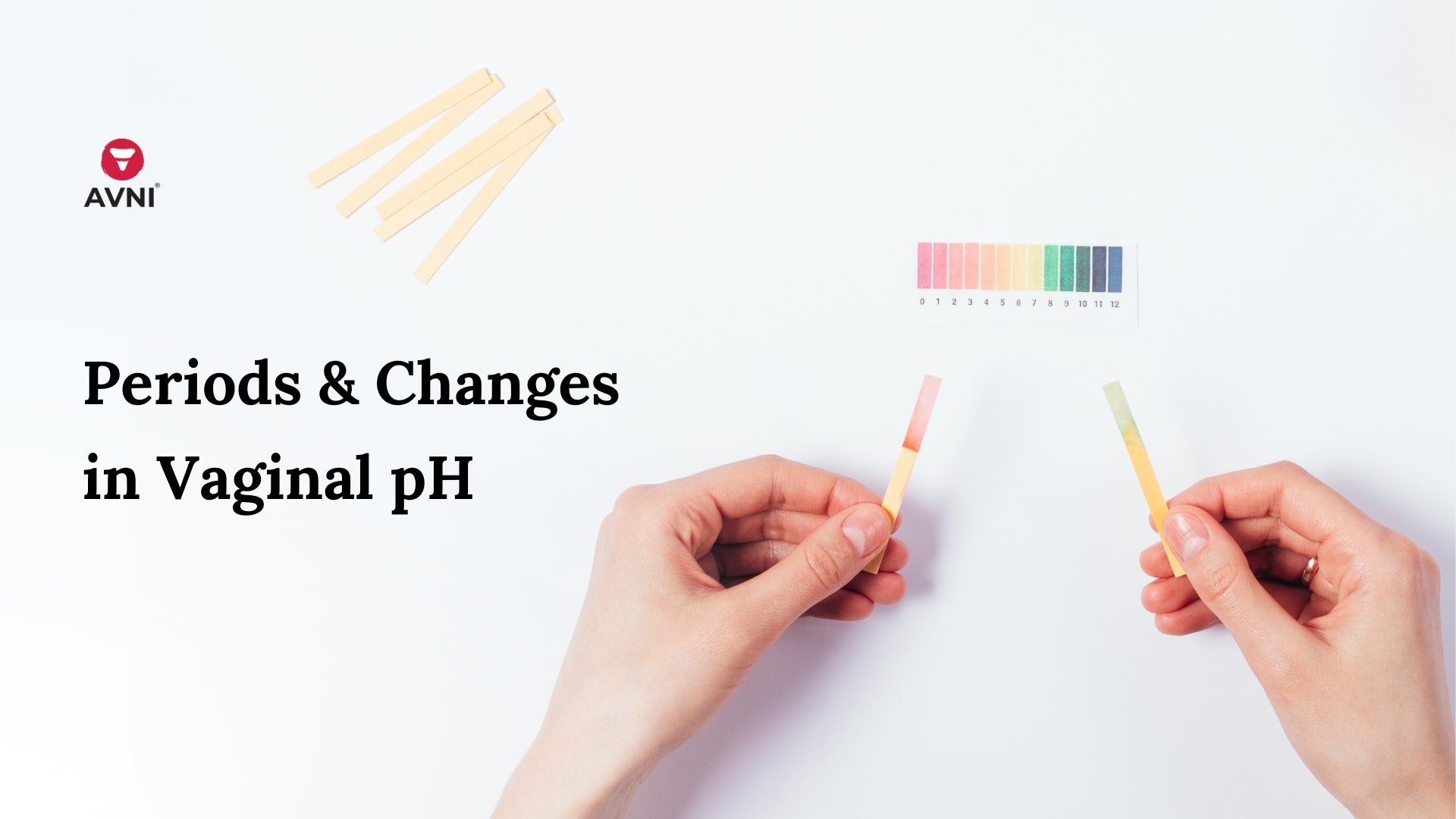
How to help autistic people manage their periods
Periods are difficult and different for all. While a regularly-abled person experiences discomfort during their menstrual flow, things are a bit more complicated for the specially - abled menstruators.
At Avni, we often talk to our customers about how we can make our product better and more convenient for all users. One particular case caught our eye. It was a mother who wanted to know we can assist her in helping her autistic daughter navigate through periods.
Autism is a neurological condition that impacts a person's ability to socialize and communicate and can affect the person across a wide spectrum. The dulled ability to communicate makes it difficult for the autistic user to feel comfortable during their periods. In addition to the anatomical discomfort, wrong sanitary products may lead to infections, rashes etc. which can make this journey more complicated.
At Avni, we are always trying to explore new options and have dug a little deeper in understanding how autistic menstruators manage their periods.

Menstrual experience for those with autism spectrum disorder
Menstrual experience for a person with autism spectrum disorder might be more irregular and painful when compared with a person with no autistic issues.
Since periods involve executive functioning, autistic menstruators find it extremely difficult to plan and perform period tasks in the right order and at the right time.
As far as PMS is concerned, autistic people are more vulnerable to sensory issues, physical pain and other side effects that come along periods.
Alongside experiencing sensory difficulties wherein they become highly sensitive to noise, smell, sound and taste, autistic people find it even more challenging to handle their emotions.
Not being able to understand the emotional turmoil amidst the physical changes, pain and everything can get on their nerves and lead to meltdowns, exhaustion and also self harm.
So how to help autistic menstruators manage their periods? The earlier they know about it, the better. Guardians and parents can help them understand and learn about periods in advance.
The Knowledge
Now, let's think about how overwhelming this experience would be for someone with autism.
Autistic people need to understand the basics of periods beforehand that includes questions like:
- How does their body work?
- Why does it bleed down there?
- What happens before the period starts?
- Does it hurt? Or is it painful?
- Will it affect their daily life?
- Is it okay to talk about periods?
Autistic people experience anxiety regarding periods. The best way to deal with such anxieties is by addressing them and telling them about the bodily changes that happen over the course of time, especially before the menstrual cycle begins.
Understanding and learning these changes helps autistic people to walk through the process.
Since they struggle with uncertainty and change, it is important to explain about periods with patience.
Knowing is significant and clear communication is the key. They may require extra support and it is better for them to start their periods with clear understanding.
Period Products
Introduction of period products to autistic people is an essential step of sharing information. They must know what a pad, tampon or period panty looks like, what it does and why they should carry an extra one while on periods.
For them, it is about feeling comfortable with what they are wearing while they go through periods. The conventional plastic wings sanitary pads are a big no-no since they almost always lead to skin irritation and rashes. Soft cloth pads and period panties can help make things easier and more comfortable for the said users.
The sight of blood on underwear panties is not only overwhelming but a scary sight for some.
This is where preparedness comes into the picture. It is necessary to make a plan and know it all, carry the required product and keep track of the period cycle. The feeling of being prepared helps a lot in managing periods.
It helps a great deal to explain to them about what each product does.
For instance,
“A cloth pad can be clasped around your underwear and it absorbs the blood for at least 6 hours. It does not hurt nor it should be uncomfortable”
“A period panty is just like your regular undergarment. You need to slip it on and you’re done for at least 6 hours”
“A tampon needs to be inserted inside your vagina slowly and use the string to tug it out. If you feel any discomfort, you can always ask for help”
Moods and pain
Mood swings, behavioural changes and abdominal pain is part and parcel of periods. Alongside additional sensory difficulties, it becomes harder for autistic people to keep a tap on their mood. PMS can be tough for autistic girls. They seem to undergo severe pain and heavy periods.
This is where self regulation steps in. Recognising symptoms and managing periods is harder than it looks. Not being able to know and regulate the changes leads to confusion, meltdowns and in some cases self harm too.
Users with autism need to feel in check with their emotions and the tried & tested way is to know about it beforehand.
You can start by saying:
“I feel very upset during my periods / I’ve heard many folks feel sad during their periods”
“You might feel angry too but it is a normal course of action”
“You might feel emotional too, and that’s okay. It’s your hormones that are affecting your mood”
“You can always tell us how you’re feeling and we’ll help you”
Never brush off the subject of menstruation, periods and vaginal health. Autistic people are detail-oriented and work with the information they are given. An autistic menstruator must know what is about to happen, how to deal with it, where to seek help and support, and above all, periods are normal.
Be clear in communication and address every question, simple or complex.
Unanswered questions cause more harm.


Leave a comment
This site is protected by hCaptcha and the hCaptcha Privacy Policy and Terms of Service apply.